Text
Health benefits for matcha tea powder and side effect
Matcha tea powder is a type of green tea that is known for its unique preparation process and numerous health benefits. Here are some of the potential health benefits for matcha tea powder:
High in antioxidants: Matcha tea powder is rich in antioxidants, particularly catechins, which help to protect the body against free radical damage and oxidative stress.
Boosts metabolism: Matcha tea powder contains a compound called EGCG (epigallocatechin gallate),which has been shown to increase metabolism and aid in weight loss.
Improves mental alertness: The caffeine in matcha tea powder can help to improve mental alertness and concentration, without the jittery side effects .
Enhances immune function: The antioxidants in matcha tea powder have been shown to help enhance immune function, potentially reducing the risk of certain diseases.
Supports cardiovascular health: Matcha tea powder may help to lower blood pressure and improve cholesterol levels, both of which are important for maintaining good cardiovascular health.
Promotes relaxation: Matcha tea powder contains an amino acid called L-theanine, which has been shown to promote relaxation and reduce stress.
Health benefits for matcha tea powder can also have some side effects, especially if consumed in excess.
Here are some possible side effects of matcha tea powder:
Caffeine sensitivity: Matcha tea powder contains caffeine, which can cause jitters, anxiety, and other symptoms in people who are sensitive to caffeine.
Digestive issues: Some people may experience digestive issues, such as nausea, diarrhoea, or stomach cramps, after consuming matcha tea powder.
Heavy metal contamination: Some matcha tea powders have been found to contain high levels of lead or other heavy metals, which can be harmful to health.
Interactions with medications: Matcha tea powder may interact with certain medications, such as blood thinners or stimulants.
Overall, while more research is needed to fully understand the health benefits of matcha tea powder, it is clear that this unique beverage can have a positive impact on many aspects of health and wellness.
Is matcha good for your health
Yes, health benefits of matcha tea powder is considered to be good for your health due to its high antioxidant content, potential to boost metabolism, enhance immune function, promote cardiovascular health, improve mental alertness, and promote relaxation. However, as with any food or beverage, it is important to consume matcha in moderation as part of a balanced and healthy diet.
When should i consume matcha tea
Matcha tea can be consumed at any time of day, but it's important to consider its caffeine content. Matcha tea contains more caffeine than regular green tea, so it may not be the best choice for some people, especially those who are sensitive to caffeine.
If you enjoy the taste and benefits of matcha tea but want to avoid the caffeine, you can opt for a decaffeinated version.
Here are some suggestions for when to consume matcha tea:
In the morning.
Before a workout: During a work break.
Before meditation or yoga.
After a meal.
Matcha tea recipes
Here are some health benefits for matcha tea powder recipe are:
1. Matcha Latte:
Ingredients:
-1 teaspoon of matcha powder
-1/2 cup of hot water
-1/2 cup of warm milk
-1 teaspoon of honey (optional)
Instructions:
1. In a bowl, whisk the matcha powder and hot water together until it forms a paste.
2. Heat the milk and pour it into the bowl with the matcha paste.
3. Whisk together until the mixture is frothy.
4. Add honey to the mixture if desired.
5. Pour the latte into a mug and serve.
2. Matcha Green Tea Smoothie:
Ingredients:
-2 teaspoons of matcha powder
-1 cup of almond milk
-1 frozen banana
-1 tablespoon of honey (optional)
-1/2 teaspoon of vanilla extract
Instructions:
1. In a blender, combine the matcha powder, almond milk, banana, honey, and vanilla extract.
2. Blend until smooth.
3. Pour the smoothie into a glass and serve.
If you need any help regarding your dietician plans visit our official website for more information.
#balanced diet#diet plan#healthy eating#nutrition#dietary#dietician#diet#recipes#top dietician#health
0 notes
Text
Understanding constipation: causes and how to cure constipation naturally
Constipation happens when bowel movements become less frequent or more challenging to pass. It is a widespread problem that can be brought on by various situations and affects people of all ages.
Here is an overview of the causes and cure for constipation
naturally.

Causes of Constipation:
Poor diet: A diet low in fibre and high in processed foods can contribute to constipation as it leads to slow digestion and less bulky stool.
Dehydration: Lack of adequate water intake can lead to hard, dry stool that is difficult to pass.
Sedentary lifestyle: A lack of physical activity can lead to a slower metabolism, including slower bowel movements.
Certain medications: Medications such as opioids, antacids, and antidepressants can slow down digestion and contribute to constipation.
Hormonal changes: Fluctuations in hormones, such as during pregnancy or menopause, can affect bowel movements and cause constipation.
Ageing: As we age, digestion slows down, and the muscles in the digestive tract become weaker, leading to constipation.
Medical conditions: Certain medical conditions, such as hypothyroidism, irritable bowel syndrome (IBS), diabetes, and multiple sclerosis, can contribute to constipation.
Mental health conditions: Anxiety, depression, and stress can affect digestion and contribute to constipation.
Ignoring the urge to have a bowel movement: Ignoring the urge to have a bowel movement can cause stool to become harder and more difficult to pass.
Travelling: Changes in routine and diet while travelling can disrupt digestion and lead to constipation.
Cure for Constipation naturally:
Constipation is a common intestinal issue that can affect anyone at any age. It is characterised by hard-to-pass faeces or infrequent bowel movements.
Here are cure for constipation naturally that may help:
Drink more water: Dehydration can contribute to constipation, so increasing your water intake may help soften stools and make them easier to pass.
Increase your fibre intake: Eating a diet high in fibre can help promote regular bowel movements.Fruits, vegetables, whole grains, and legumes are high in fibre.
Exercise regularly: Regular physical activity can help stimulate the muscles in your digestive system and promote bowel movements.
Use natural laxatives: Certain foods such as prunes, figs, and flaxseeds can act as natural laxatives and help relieve constipation.
Try probiotics: Probiotics are beneficial bacteria that can help regulate the digestive system and promote regular bowel movements. You can find probiotics in fermented foods like yoghurt, kefir, and kimchi.
Take magnesium supplements: Magnesium is a mineral that can help relax the muscles in the digestive system and promote bowel movements. Consult your doctor before using magnesium supplements.
Drink herbal tea: Certain herbal teas like senna, peppermint, and ginger can help stimulate bowel movements and relieve constipation.
Try a squatting position: Squatting can help promote bowel movements by putting pressure on the colon. You can use a footstool or special device to achieve a squatting position.
Avoid certain foods: Some foods can contribute to constipation, including processed foods, dairy products, and red meat. Avoiding these foods may help alleviate constipation.
Take over-the-counter laxatives: If natural remedies don't work, over-the-counter laxatives like stool softeners, bulk-forming laxatives, and stimulants may help relieve constipation. Before taking any drug, you should consult your doctor.
If you need any help regarding your cures for constipation naturally or healthy diet plans feel free to contact us or live chat with us through our official website.
Healthy diet plan to cure for constipation
Constipation can be caused by a variety of factors, including a lack of fibre in the diet, dehydration, and a sedentary lifestyle. The good news is that dietary changes can often help relieve constipation.
Here is a healthy diet plan for cure for constipation:
Increase fibre intake: Eat foods that are high in fibre such as fruits, vegetables, whole grains, nuts, and seeds. Aim for 25 to 30 grams of fibre each day, minimum.
Drink plenty of water: Staying hydrated is essential for keeping the digestive system running smoothly. Drink at least 8-10 cups of water a day.
Avoid processed foods: Processed foods are often low in fibre and high in fat and sugar. Instead, select less processed whole foods.
Eat probiotic-rich foods: Probiotics can help improve gut health and regulate bowel movements. Include yoghurt, kefir, and fermented foods in your diet.
Cut back on meat: Meat can be difficult to digest, especially if it's high in fat. Try swapping out meat for plant-based proteins like beans, lentils, and tofu.
Avoid caffeine and alcohol: Both caffeine and alcohol can dehydrate the body, which can worsen constipation.
Exercise regularly: Regular exercise can help improve digestion and promote bowel movements .Every day, try to get in at least 30 minutes of moderate exercise, like brisk walking.
Remember, it's important to make changes to your diet gradually and to drink plenty of water throughout the day. If constipation persists, it's best to speak with a healthcare provider for further evaluation and treatment.
#constipation#cure#causes#healthy food#best food for constipation#balanced diet#diet#diet plan#healthy eating#dietary#nutrition#dietician#recipes#top dietician#health#dieticianankita
0 notes
Text
Foods to Boost Your Immune System
You are what you eat, as is well known. A well-balanced diet full of healthy foods is your best line of defense against serious chronic illnesses like heart disease, obesity, and diabetes, according to years of research.
Yet, did you know that the foods you eat can also aid in your fight against diseases like the flu? Some meals have a reputation for boosting the immune system. They thus aid the immunological system of your body.
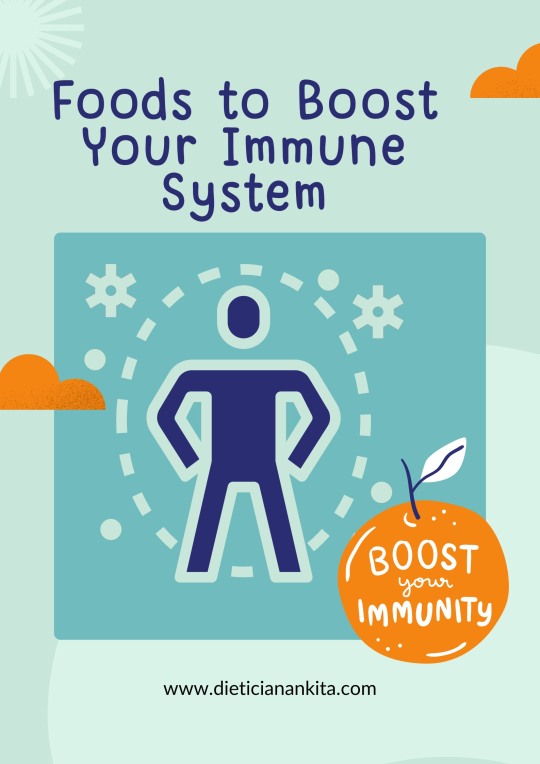
Foods That Boost the Immune System
Regular eating of a variety of nutrient-rich foods, such as citrus fruits and spinach, which are strong in vitamins and minerals, can help your immune system.
1. Citrus fruits
When a cold strikes, most people reach for vitamin C right away. This is because it makes your immune system stronger.
It is believed that vitamin C increases the production of white blood cells, which are crucial for fighting infections.
Typical citrus fruits are:
grapefruit
oranges
clementines
tangerines
lemons
limes
2. Red bell peppers
If you think citrus fruits have the highest vitamin C content of any fruit or vegetable, think again. Red bell peppers have approximately three times as much vitamin C per ounce (127 mg) as a Florida orange Moreover, they contain a lot of beta carotene.
3. Broccoli
Boosted with vitamins and minerals, broccoli. Broccoli is one of the healthiest veggies you can eat because it contains a lot of antioxidants, fibre, and vitamins A, C, and E.
4. Garlic
Almost every cuisine in the world uses garlic. It improves food flavor and is necessary for optimum health.
Ancient civilizations were aware of its effectiveness in avoiding diseases. Garlic may also slow down the hardening of the arteries, and there is some flimsy evidence that it helps lower blood pressure.
5. Ginger
Another food that lots of people eat while they're sick is ginger. Inflammatory conditions, such as sore throats and inflammatory illnesses, may improve with the help of ginger. Ginger may help nausea as well.
6. Spinach
Spinach made our list not just because it's high in vitamin C, but also because it's loaded with beta carotene and a tone of other antioxidants that may help our immune systems fight off infections.
7. Yogurt
Search for yoghurts like Greek yoghurt that say "live and active cultures" on the label. These cultures might boost your immune system and aid in disease prevention.
Purchase plain yoghurt whenever possible rather than flavour- and sugar-laden varieties. Instead, you can naturally sweeten plain yoghurt with some honey and healthy fruits.
8. Almonds
Typically, vitamin C is more effective than vitamin E at preventing and treating colds. However this antioxidant is necessary for a strong immune system.
Since it is a fat-soluble vitamin, fat must be present for proper absorption. Nuts like almonds are rich in vitamins and also have healthy fats.
9. Sunflower seeds
Among the many minerals included in sunflower seeds are phosphorus, magnesium, and vitamins B-6 and E.
The immune regulation and maintenance depend on vitamin E Avocados and dark leafy greens are two other foods high in vitamin E.
10. Turmeric
You may be familiar with the ubiquitous curry ingredient turmeric. Its bright yellow, pungent spice has also long been used as an anti-inflammatory in the treatment of rheumatoid and osteoarthritis.
11. Green tea
The antioxidant flavonoids, which are present in both green and black teas, are abundant. Where green tea really excels is in the quantity of epigallocatechin gallate (EGCG), another strong antioxidant.
In studies, it was discovered that EGCG enhanced immune function. The fermentation process in black tea results in the bulk of the EGCG being lost. The EGCG is maintained in green tea because it is steamed rather than fermented.
12. Papaya
Another fruit high in vitamin C is papaya. The amount of vitamin C in a single medium fruit is double what is advised for daily consumption. Moreover, papayas contain the anti-inflammatory digestive enzyme papain.
13. Kiwi
Like papayas, kiwis are naturally rich in several essential elements, including folate, potassium, vitamin K, and vitamin C.
Vitamin C strengthens white blood cells so they can fight disease, while the other minerals in kiwis keep the rest of your body healthy.
14. Poultry
When you consume chicken soup when you are ill, it has more positive effects than just the placebo effect. The soup might lessen inflammation, which would assist with cold symptoms.
Other ways to boost the immune system naturally
Healthy lifestyle choices will help your immune in addition to selecting nutritious foods for your diet:
• Exercise regularly. Set a goal of 30 minutes of mixed cardio and strength training five days a week.
• Don’t smoke.One of the best things you can do for your body is to stop smoking.Assistance is provided to assist smokers in quitting.
• Manage stress. Life is full of stress for everyone. But, if that stress persists, it can impair your immune. You can learn stress management techniques to feel better both psychologically and physically.
• Get recommended vaccines. We are really lucky to have access to immunisations that can protect us against common diseases like the flu, pneumonia, and COVID-19. Ensure that your vaccinations are current.
• Alcohol in moderation only It's critical to keep in mind that alcohol is a depressant with profound physiological consequences. Please drink sparingly if you do.
0 notes
Text

Pregnancy Healthy Tips , If you more pregnancy health & which type of foods you eat or avoid during pregnancy
0 notes
Text
Can Vegetarian Diet Lower Cholesterol?
Yes, a Vegetarian Diet Lowers Cholesterol levels. Cholesterol is a fatty substance found in animal products, including meat, dairy, and eggs. Vegetarian diets, on the other hand, typically avoid or limit these foods and instead focus on plant-based foods, which are generally lower in saturated fats and cholesterol.
A vegetarian diet that is high in refined carbohydrates and saturated fats, such as sugar, white bread, and fried foods. To maximize the cholesterol-lowering benefits of a vegetarian diet, it's important to focus on whole, unprocessed plant-based foods, such as fruits, vegetables, whole grains, legumes, nuts, and seeds.
Benefits of a vegetarian diet For lowering Cholesterol
A vegetarian diet has several benefits for lowering cholesterol, including:
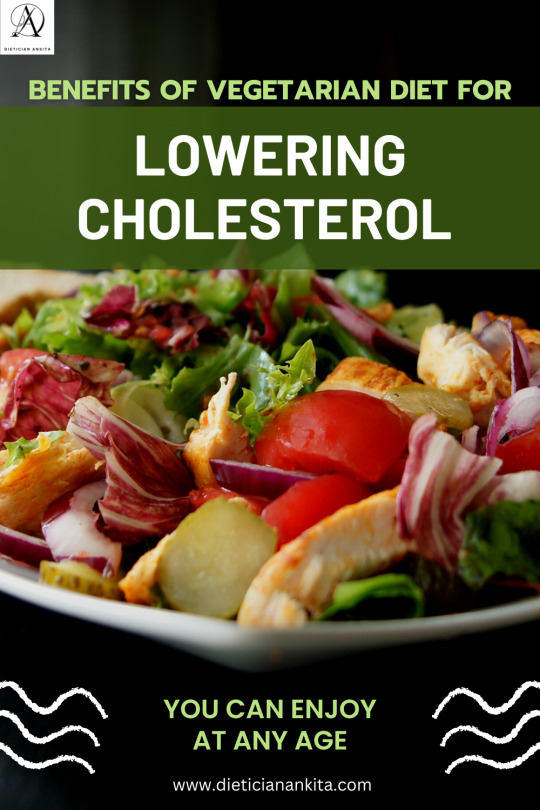
Lower intake of saturated fats: Saturated fats, which are found in animal products such as meat, dairy, and eggs, can raise cholesterol levels. Vegetarian diets typically limit or avoid these foods, leading to a lower intake of saturated fats and, in turn, lower cholesterol levels.
High in fiber: Vegetarian diet is typically high in fiber, which can help lower cholesterol levels by binding to cholesterol and removing it from the body.
Rich in plant sterols and stanols: Plant-based foods, such as whole grains, fruits, and vegetables, contain plant sterols and stanols, which can help lower cholesterol levels by blocking the absorption of cholesterol in the gut.
Rich in antioxidants: Vegetarian diet is typically rich in antioxidants, which may have cholesterol-lowering properties.
Lower in dietary cholesterol: Unlike animal products, which contain dietary cholesterol, plant-based foods do not contain cholesterol. By avoiding animal products and focusing on plant-based foods, vegetarians can significantly lower their intake of cholesterol.
Can lead to weight loss: Vegetarian diet may lead to weight loss, which can in turn lead to lower cholesterol levels. Excess weight is a risk factor for high cholesterol, so losing weight can be beneficial for overall cholesterol management.
Overall, a vegetarian diet can be a healthy and effective way to lower cholesterol levels.
Which vegetarian diet is best for lowering cholesterol?
A vegetarian diet can be effective for lowering cholesterol levels, but it's important to make sure that the diet is balanced and includes the right types of foods. Here are some vegetarian diets that have been shown to be effective in reducing cholesterol levels:
Mediterranean diet: The Mediterranean diet emphasizes plant-based foods such as fruits, vegetables, whole grains, legumes, and nuts, as well as healthy fats such as olive oil and fish. Studies have shown that this diet can help lower LDL (bad) cholesterol levels.
Vegan diet: Vegans abstain from all animal products, such as dairy, meat, and eggs. A vegan diet has been linked to decreased LDL cholesterol levels, according to research.
Portfolio diet: The Portfolio diet is a vegetarian diet that includes specific cholesterol-lowering foods such as nuts, soy protein, plant sterols, and soluble fiber. Studies have shown that this diet can reduce LDL cholesterol levels by up to 30%.
How fast can a vegetarian diet lower cholesterol?
The speed at which a vegetarian diet can lower cholesterol levels can vary depending on several factors, such as the individual's current cholesterol levels, the specific type of vegetarian diet being followed, and how strictly the diet is adhered to.
However, research suggests that a vegetarian diet, particularly one that is low in saturated and trans fats and high in fiber, can help to lower cholesterol levels within a few weeks to a few months.
It's important to note that while a vegetarian diet can be beneficial for lowering cholesterol levels, it's not the only factor that contributes to heart health.
What are the different types of vegetarian diets?
There are several types of vegetarian diets, each with varying degrees of restriction on animal products.Some of the most typical varieties are listed below:
Lacto-vegetarian: This type of vegetarian diet includes plant-based foods and dairy products but excludes eggs.
Ovo-vegetarian: This type of vegetarian diet includes plant-based foods and eggs but excludes dairy products.
Vegan: Vegans exclude all animal products, including meat, dairy, eggs, and even honey.
Pescatarian: This is a semi-vegetarian diet that includes plant-based foods, dairy products, and eggs, as well as fish and seafood.
Flexitarian: This is a relatively new term used to describe a semi-vegetarian diet that primarily consists of plant-based foods but occasionally includes meat, dairy products, and eggs.
It's important to note that while vegetarian diets can be healthy and nutrient-rich, they require careful planning to ensure that they provide all the necessary nutrients.
#vegetarian diet#diet plan#diet#balanced diet#healthy eating#nutrition#dietician#recipes#health#dietary#top dietician#lower cholesterol#cholesterol#best food for cholesterol#right choice#dieticianankita
0 notes
Text
Matcha - Perfect for Your Everyday Health and Wellness
Perfect for your everyday Health and Wellness with matcha .Green tea powder called matcha tea is high in antioxidants. For traditional green tea, the leaves are steeped in boiling water before being discarded. The dried leaves are really ground into a powder when using matcha, which is then added to the tea and consumed.The tea is thought to be the most aromatic type of green tea because of its distinctive, non-bitter flavour and vivid green colour.
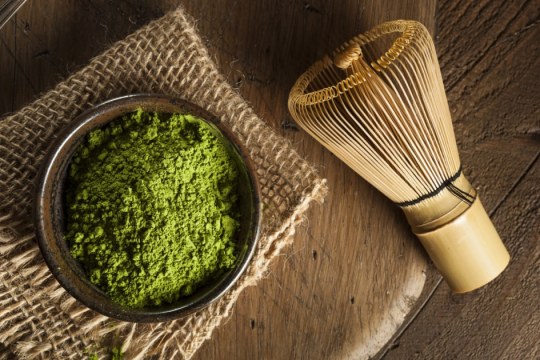
Benefits of Matcha for Health?
Many individuals are switching to matcha, a caffeinated substitute well known for its brilliant colour, as more and more people attempt to reduce their consumption of coffee. It's a form of green tea, but it's not the hot water-infused loose-leaf variety. A powder called matcha is created by grinding up green tea leaves. The advantages of matcha are much greater than those of the traditional type since it contains a larger concentration of nutrients.
It's packed with vitamins and antioxidants: Both catechins and polyphenols, another class of antioxidant found in green tea, are present. Jenna Gorham, RD, dietitian and founder of the RD Link, says that matcha powder provides a megadose of these potent antioxidants, which can help lessen cell damage and prevent chronic disease.
It might enhance the radiance on your skin:If you have skin issues, Miyashita advises switching to matcha for a week rather than coffee. According to a 2017 study that was published in the journal Nutrients, the vitamin C in matcha boosts the formation of collagen when consumed. Additionally, a study published in the journal Advances in Skin & Wound Care suggests that vitamin B may aid in the promotion of healthy skin cell turnover.
It can make your bones stronger: Most individuals don't consider actively taking steps to strengthen their bones, yet doing so is crucial for health and mobility, especially as you age. By lowering the oxidative stress that causes inflammation in the bones, polyphenols, the antioxidant-rich substances in green tea, may increase bone mineral density (i.e., how solid your bones are). According to a number of earlier research, this can subsequently reduce your risk of getting osteoporosis.
Compared to a cup of coffee or boiled tea, it may be more filling: Due to its potent, earthy flavour, matcha powder is most frequently blended and served with milk or a non-dairy substitute, such as almond or oat milk. The milk's additional calories make the beverage more filling than your typical espresso-based latte.
It might safeguard your brain: A tiny study from 2020 that was published in the journal Nutrients suggests that drinking matcha every day may help halt cognitive decline. That's because matcha contains plenty of lutein and vitamin K, both of which have been linked to enhanced cognitive abilities including attention and memory.
Matcha tea has many health advantages, excess consumption may have negative effects.
Like most things, drinking too much matcha tea can be harmful to your health. Excessive matcha use may have negative side effects such as headaches, sleeplessness, and upset stomach. Matcha also includes a lot of caffeine, so consuming too much of it may also cause jitteriness and other caffeine-related adverse effects, such as a faster heartbeat. It is usually advised to consume food and beverages in moderation.
How can Matcha be used?
Matcha has several applications, some of which are as follows:
Drinking: Matcha is typically taken as a tea, which is the most popular way to consume it. To make a frothy and tasty beverage, the powder is customarily whisked with hot water.
Cooking and baking: Matcha powder may also be used in cooking and baking to give desserts and savoury foods a distinctive green tea flavour. It's frequently used in baked products including cakes, cookies, and bread as well as smoothies, matcha ice cream, and other baked goods.
Due to its high antioxidant content, which can help shield the skin from free radical damage, matcha powder is also utilised in various cosmetics and skincare products.
Supplements: Matcha powder is also offered in capsules, pills, and powdered supplements.
Matcha is traditionally used in Japan's traditional tea ceremony, where it is regarded as a sign of deference, friendliness, and harmony.
Due to the calming effects of the L-Theanine, some people use matcha as a way to improve their yoga and meditation practices.
Does matcha have caffeine?
Yes, caffeine is present in matcha. The Camellia sinensis plant, which also yields green, black, and oolong tea, is the source of the leaves used to manufacture matcha. Matcha contains more caffeine than other types of tea because the leaves are grown and processed specifically for this purpose.
Matcha's caffeine concentration varies depending on the powder's quality, although it is typically thought to be higher than that of other kinds of tea. Matcha typically includes 35 mg of caffeine per serving, or about the same as one cup of coffee. According to some research, matcha has up to three times as much caffeine as a typical cup of green tea.
Method for making Matcha?
Here is a recipe for classic matcha tea:
Ingredients:
Matcha powder, 1 teaspoon
2 ounces (or 60 ml) of hot (between 175 and 180 °F) water
Optional: 1 to 2 teaspoons of honey or sugar (if desired)
Instructions:
To get rid of any lumps, sift the matcha powder through a fine mesh strainer.
Matcha powder, hot water, and sugar or honey (if used) should be whisked together in a small bowl until foamy.
Matcha mixture should be whisked in a "W" motion with a bamboo whisk while holding the bowl with one hand until a thick froth has formed on the tea's surface.
You can use a little electric whisk or a small metal whisk if you don't have a bamboo whisk.
The tea is ready to be served once it has frothed up and been thoroughly blended. Take some time to savour the distinct flavour and scent of your matcha tea.
#healthy eating#matcha#tea time#plantbased#diet plan#balanced diet#nutrition#recipes#dietary#diet#top dietician#dietician#healthcare#health
2 notes
·
View notes
Text
What is Good Nutrition & Its Benefits?
Good nutrition refers to the consumption of a balanced and varied diet that provides the body with all the necessary nutrients and energy to function properly. A well-rounded diet should include a variety of fruits and vegetables, whole grains, lean proteins, and healthy fats.
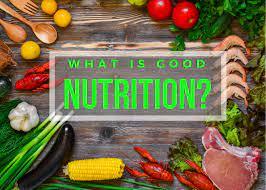
The benefits of good nutrition include:
Proper growth and development
Maintenance of a healthy weight
Risk of chronic diseases such as heart disease, diabetes, and some cancers is reduced.
Improved immune function
Increased energy levels and improved mood
A healthy pregnancy and proper foetal development
Better brain function and cognitive performance
Improved athletic performance and recovery
A healthy ageing process.
It's important to note that the body requires different nutrients at different age, gender, and physical activity levels, so it's recommended to consult with a doctor or a registered dietitian to create a personalised nutrition plan.
Eating a Balanced Diet for Overall Wellbeing & Optimal Health
Eating a balanced diet is essential for overall wellbeing and optimal health. A balanced diet includes a variety of nutrient-dense foods from all the different food groups, in the right proportions.
The following food groups should be included in a well-balanced diet:
Fruits and vegetables
Whole grains
Lean proteins
Healthy fats
Dairy and alternatives
It's also important to be mindful of portion sizes and to limit the intake of added sugars, saturated fats, and sodium. Drinking enough water, and avoiding alcohol and smoking is also important for overall well being.
A balanced diet is essential for maintaining good health, preventing chronic diseases and ensuring overall wellbeing. It's always good to seek the help of a registered dietitian to create a personalised plan that is tailored to your specific needs and goals.
2. Add Superfoods to Your Diet for Maximum Nutrition & Energy Boosts
Superfoods are foods that are particularly rich in nutrients and offer a wide range of health benefits. Incorporating these foods into your diet can help to boost your nutrient intake and provide you with maximum nutrition and energy.
Some examples of superfoods include:
Berries:Berries such as blueberries, raspberries, and blackberries are high in antioxidants and can help improve heart health.
Quinoa:Quinoa is a high-protein grain that is also high in fibre, vitamins, and minerals.
Leafy greens:Spinach, kale, and broccoli are all high in vitamins.
Salmon:Salmon is high in omega-3 fatty acids, which can help reduce inflammation and improve heart health.
Nuts and seeds
Turmeric
Dark chocolate
Avocado
It's important to note that no single food can provide all the nutrients you need, so it's important to include a variety of superfoods in your diet, as well as other nutrient-dense foods. Also, some of these foods may cause allergies or sensitivities, it's always good to consult with a doctor or a registered dietitian before making significant changes to your diet.
4. Avoid Unhealthy Foods High in Sugar & Processed Carbs
Unhealthy foods that are high in sugar and processed carbs can contribute to a number of health problems. Consuming these foods in excess can lead to weight gain, increased risk of chronic diseases such as diabetes and heart disease, and poor overall health.
Examples of foods that are high in sugar and processed carbs include:
Soft drinks and other sugary beverages
Sweets and candy
White bread, pastries, and other refined grains
Processed snacks.
Fried foods
It's important to limit the intake of these foods and to opt for healthier alternatives such as fruits, vegetables, whole grains, lean proteins, and healthy fats. Drinking enough water, and avoiding alcohol and smoking is also important for overall well being. It's always good to consult with a doctor or a registered dietitian before making significant changes to your diet.
Hydrate Regularly For Proper Digestion and Weight Management
Hydration is crucial for proper digestion, weight management and overall health. Drinking enough water can help to regulate appetite, boost metabolism and aid in digestion. When the body is dehydrated, it can lead to constipation and other digestive issues. It's essential to drink enough water to keep the body hydrated and functioning properly.
Here are some ways in which staying hydrated can help with weight management:
Drinking water can help to reduce hunger and curb cravings for unhealthy foods.
It can help to boost metabolism and increase energy levels, making it easier to be active and burn calories.
It can also help to flush out toxins and waste products from the body, which can aid in weight loss and improved overall health.
Drinking water before meals can help to reduce the amount of food consumed by providing a feeling of fullness.
It's recommended to drink at least 8 cups of water a day, but the amount may vary depending on factors like physical activity level, body weight and climate. vegetables, can. Consuming water-rich foods can also add extra nutrition to the diet. It's always good to consult with a doctor or a registered dietitian before making significant changes to your diet, especially if you have any medical conditions or taking any medications.
1 note
·
View note
Text
Plant Based Protein Sources
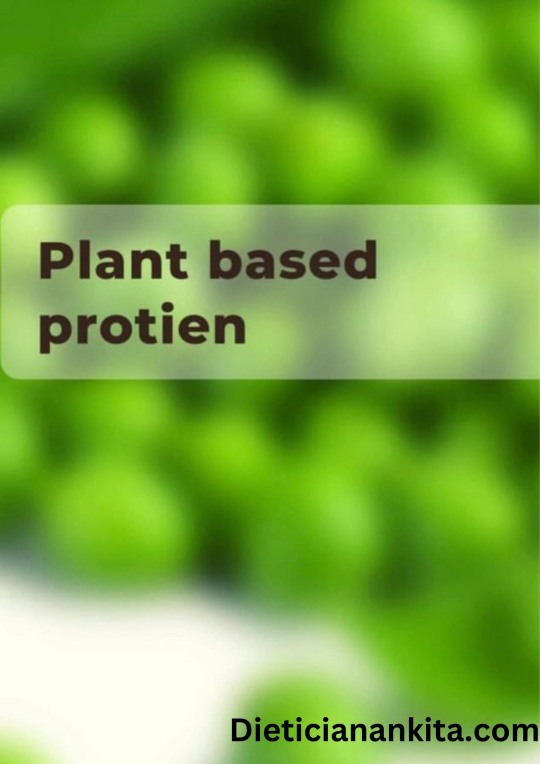
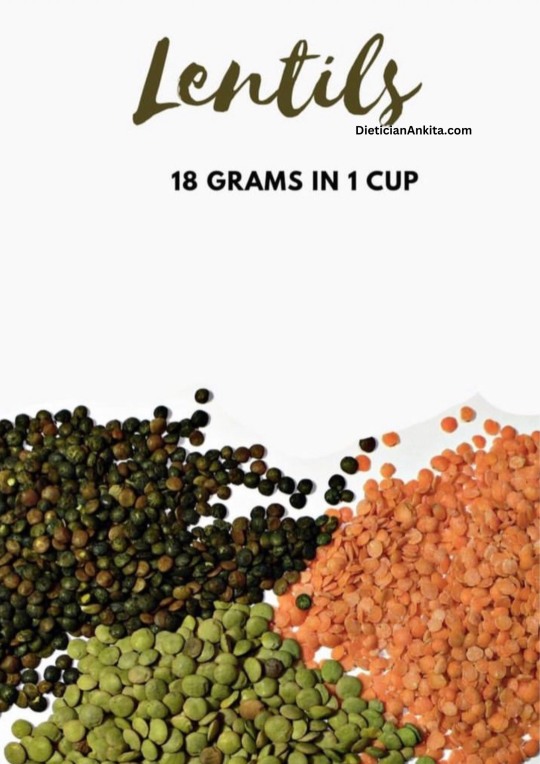
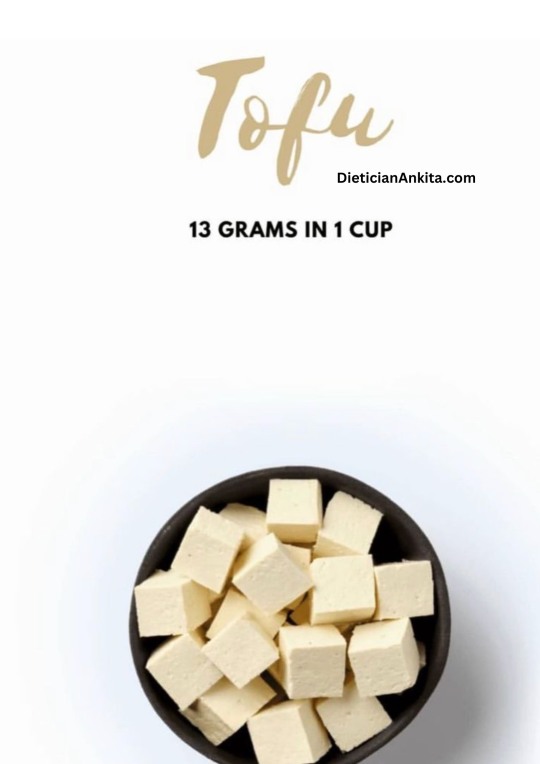
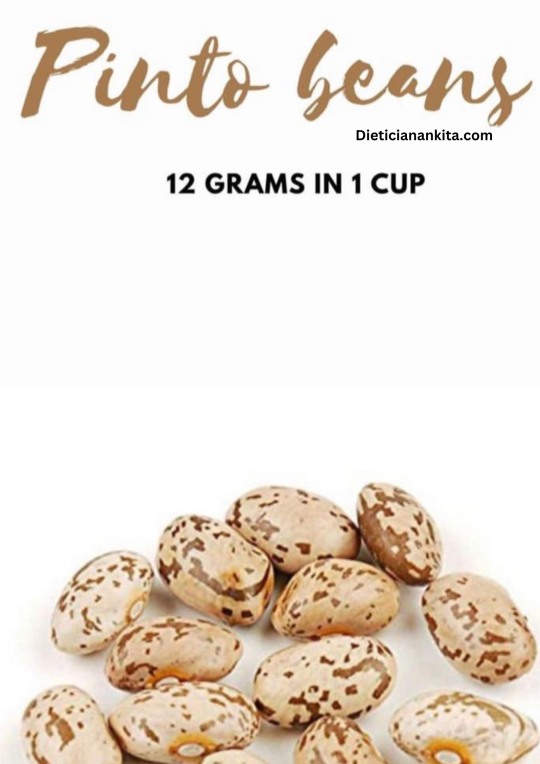
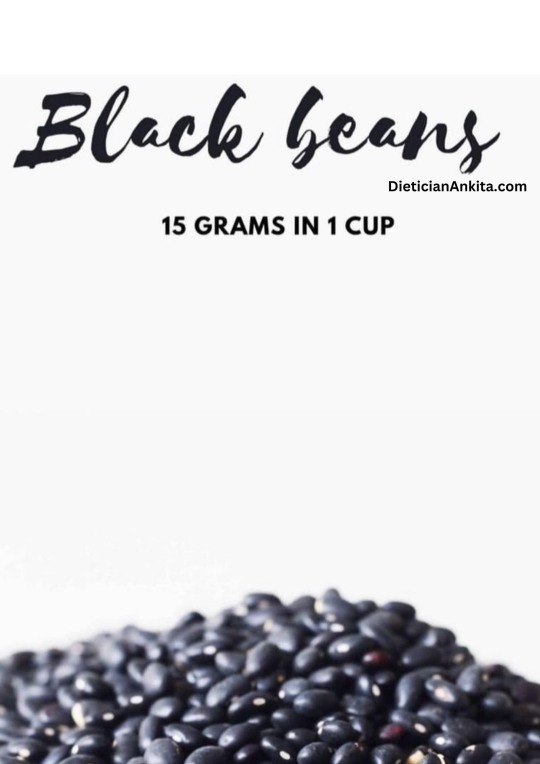
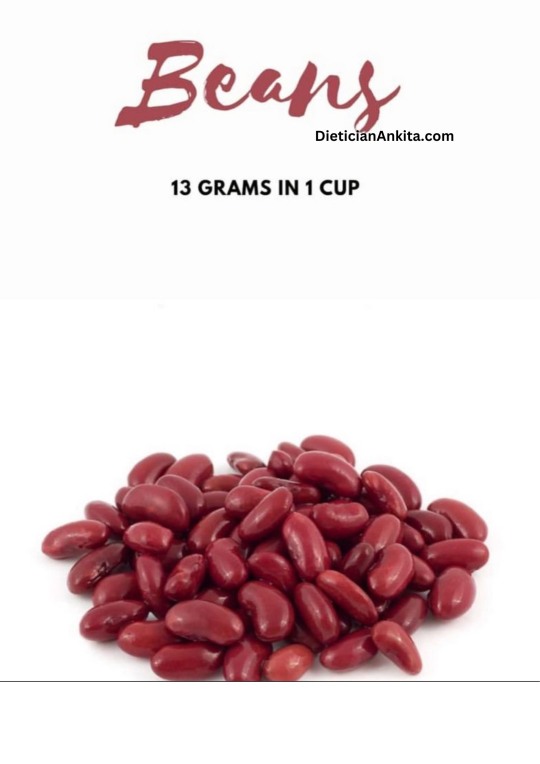
#protien#plantbased#balanced diet#diet plan#diet#dietary#top dietician#lentils#beans#dietician#tofu#black beans#habits#health and wellness
0 notes
Text
Real wealth, as opposed to gold and silver coins, is health.
0 notes
Text
Which foodstuffs cause piles?
Veins within and outside of your anus and rectum that are inflamed and enlarged is called Piles . They may be uncomfortable, painful, and can lead to rectal bleeding. Another name for piles is haemorrhoids . Hemorrhoids are a part of everyone's natural state, however they are generally not an issue. They only exhibit bothersome symptoms when they swell and grow larger.
1.It's advisable to restrict those foods which contain little fiber you eat because eating too much of them might lead to or exacerbate constipation (and, consequently, hemorrhoids' ).

2.White bagels and bread
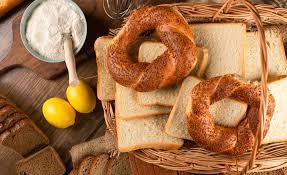
3.dairy products such as milk and cheese
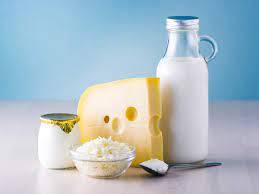
4.Meat Processed foods, such as fast food and frozen meals

Before using iron supplements, consult your doctor because they may contribute to constipation and other digestive issues. Piles are a result of straining, which puts pressure on the veins in your rectum or anus. They may come to mind as varicose veins on your bottom. Anal and rectal veins might swell and inflame as a result of any strain that puts more pressure on your tummy or lower extremities.
5.Especially during pregnancy, weight increase can cause pelvic discomfort

6.putting up a lot of effort to poop due to constipation

7.lifting large objects with effort or weightlifting

How can we prevent from piles ?
As your age older ,piles are more frequent. These actions can aid in avoiding the constipation and firm stools that can cause piles
*.Avoid using the restroom for too long or too firmly. Pressure on your rectum and anus results from prolonged toilet use. Your rectum is lower than the rest of your bottom because the seat is carved out. Blood begins to collect and clot in certain veins as a result of gravity taking over. Hemorrhoids may result from straining or pushing when those factors are present.
*When the desire strikes, use the restroom right away; don't wait. Try to sit down for a while if you feel the need to use the restroom between bathroom visits. Breathe deeply and direct your attention away from your bladder. Set a target of waiting for at least five minutes. You can eventually increase this to 10 or even 20 minutes.
*Drink a lot of water all day long .The kidneys are unable to excrete extra water from the body when there is too much of it present. It begins to build up inside the body and causes nausea, vomiting, and diarrhoea . headaches that keep you up all day. Both dehydration and hydration can cause headaches.
*Increase your intake of whole grains, fresh fruits and vegetables, and other high-fiber foods. In general, women and those born with the gender allotted to them should strive to consume 25 grams of fiber daily, whereas males and those born with the gender allocated to them ought to consume 35 grams.
*Physically active. Bowels continue to move when you're moving. It's likely that you've changed something about your lifestyle if you're going to the bathroom more frequently. For instance, you might be eating more whole grains, which boosts your consumption of fibre . Increased bowel movements may sometimes be a sign of a minor condition that will go away on its own.
*Only use laxatives or enemas as directed by your healthcare professional. Laxatives and enemas in excess can make it worse. The most typical signs of a laxative overdose include nausea, vomiting, cramping in the abdomen, and diarrhoea. Children are more likely than adults to have dehydration and an imbalance in their electrolytes (body chemicals and minerals).
#piles#piles cause#healthy eating#fiber#healthy food#water#pregnancy#fresh food#diet#dietary#balanced diet#diet plan#weight mangement#stools#prevention#treatment#hemorrhoids
0 notes
Text
Protein
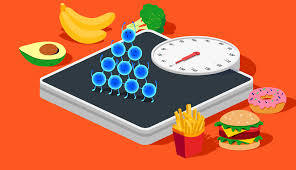
When you consume enough protein and engage in regular strength training, the protein in your diet can help repair and build new muscle tissue. As muscle tissue is denser than fat tissue, an increase in muscle mass can lead to a weight gain, even if your body fat percentage remains the same.
How does protein help in weight gain ?
Every day, eat three to five meals
It may be simpler to boost calorie intake if you eat at least three meals every day. The number of calories consumed during snacking can also be increased.
Weight training
Healthy weight gain requires weight training at least three times a week. This will support the development and preservation of lean muscle mass.
A person must vary and enhance their workouts to keep building lean body mass by either increasing the amount of weight they lift or the quantity of reps or set.Effective muscular growth can be achieved through compound exercises. These include weightlifting exercises like the deadlift, squat, and bench press that work several different muscular groups. Regular exercisers must monitor their calorie intake to make sure they are giving their bodies the right amount of fuel.
Consume adequate protein.
Muscle growth is supported by a diet that contains the correct amount of protein. Consuming 0.8 to 2.0 grams of protein per kilogramme of body weight along with consistent weight training will improve a person's muscular mass. To gain weight in a healthy way, you must do this. Eggs, meats, seafood, nuts, and legumes are some examples of foods high in protein.
Consume meals that contain healthy fats and dietary fibre.
Every meal should contain foods high in nutritious fats and fibre carbs to assist improve the intake of calories and nutrients. These foods give you the vital fuel you need to keep up a regular exercise schedule and encourage muscular growth. Instead of using refined and processed sources of carbs, people should use whole-food alternatives, like brown rice and beans. It is crucial to distinguish between healthy and unhealthy fats. Healthy fats are typically monounsaturated or polyunsaturated fats, which can be found in foods like fish, avocados, nuts, and vegetable oils. Saturated and trans fats are examples of unhealthy fats .Saturated fat intake should be kept to a minimum, and additional trans fats should be avoided.
#diet#protien#weight gain#plantbased#veganfood#non veg food#diet plan#balanced diet#diet chart#weight mangement#nutrition#healthy eating#recipes#gain diet#dietician
1 note
·
View note
Text

#health#healthy eating#healthcare#wellness#healthy food#lifestyle#diet#weight loss#weight gain#cancer#kidney#diabetes#patients#balanced diet#fat loss#dietician#thyroid#protien#nutrition#body mass index (bmi); bmi (body mass index)
0 notes
Text
Tough Situations build Strong People .
#inspire#healthy eating#recipes#nutrition#motivation#lifequotes#lifelessons#get motivated#balanced diet#diet plan
0 notes
Text
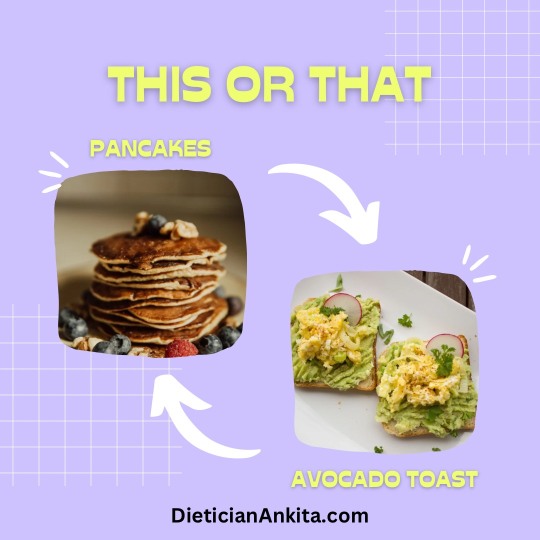
Which one choose pancakes vs avocado toast . f you want to know about more your health & eating habits in your daily lifestyle . Just visit on our website https://dieticianankita.com
https://dieticianankita.com
#healthy eating#recipes#diet#diet plan#top dietician#pancakes#avocado toast#food#healthy breakfast#nutrition#balanced diet#dietary
1 note
·
View note